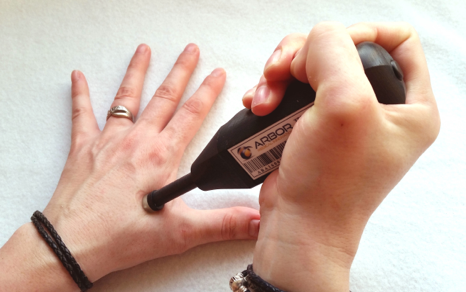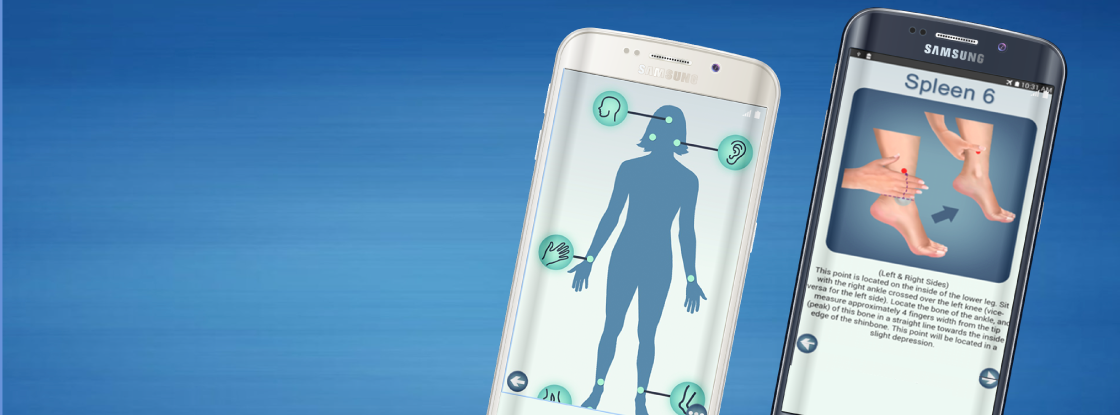Fatigue, sleep disturbances and poor quality of life are significant, interrelated, and prevalent issues for ovarian cancer survivors, yet few treatments options exist. Moreover, very few studies have investigated interventions that focused on ovarian cancer survivors with their unique needs and challenges. A new study, led by Suzanna Zick, N.D., M.P.H., Research Associate Professor, will test an acupressure self-care intervention to help alleviate fatigue, improve sleep and quality of life in ovarian cancer survivors.
The proposed investigation was recently awarded research funding, totaling $928,592, from the United States’ Department of Defense, as part of their Ovarian Cancer Research Program. The project period will begin June 1, 2018 and end on May 31, 2019.
Prior to this project, Zick and her team of clinician-researchers and engineers designed and developed an acupressure mobile app, MeTime, and associated Bluetooth-enabled handheld acupressure device, the AcuWand. Together, the app and accessory were tested in a pilot study of ovarian cancer survivors with persistent fatigue.

If successful, this self-administered acupressure intervention will be readily available to patients at minimal costs. The proposal uses an innovative “real-world” strategy to deliver the acupressure intervention using a commercially available mobile app and low-cost device. Ovarian cancer survivors could use the app and device in their home or workplace. Alternatively, a woman’s health care provider, whether oncology or primary care could also recommend and or go over the app and device with their patients. As such, this intervention is positioned to empower ovarian cancer survivors to take steps to help improve their quality of life.
See previously published work from Dr. Zick on the use of acupressure in fatigue reduction among cancer survivors:
Disclosure: The University of Michigan and inventors, Dr. Suzanna Zick and Dr. Richard Harris, are entitled to royalties from the sale of the MeTime mobile app which is available on Google Play or the Apple Store. The University of Michigan has an ownership interest in Arbor Medical Innovations (AMI) which manufactures the AcuWand device used in this study and may be available for sale in the future.




